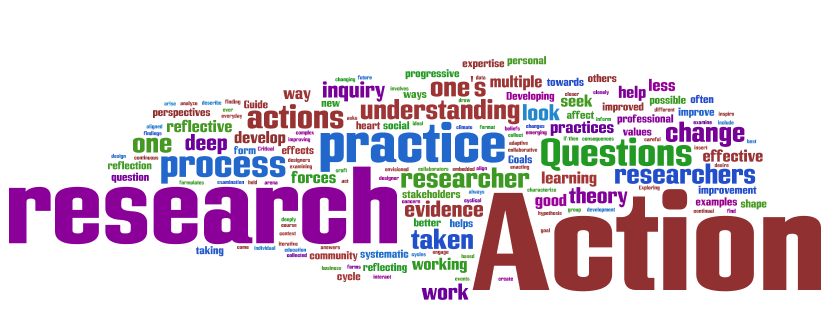Conversations with my Future Self – Reflections of my MALAT Experiences
Unit 2, Cultures of Inquiry, Residency, End of Week 1 (July 22)
Situating Your Research
My first week of residency has brought a whole new dimension of understanding to several different research traditions I had reviewed during pre-residency. Interacting with my classmates and listening to their own perspectives of the research traditions found in Bentz & Shapiro (1998) has helped me expand on some of my original perspectives, while clarifying others.
Action research caught my attention during pre-residency reading as something I could most relate to. According to Bentz & Shapiro, action research’s intention “is to influence or change a system, and the values are those of participation, self-determination, empowerment through knowledge, and change.” (p. 127) Working with adults in corporate training, my primary motivator, what really keeps me going, is knowing that I am participating in something that can support real change with the people I am instructing, change in how they approach their life and/or work. Success in what I instruct relies heavily on participants in my class identifying how what they are learning will empower them personally or professionally.
As I look further into the aspects of an action researcher, I recognize personality traits in myself that are reflected on in Bentz & Shapiro (1998), “’action research calls for a person who is action oriented, who is not simply satisfied with understanding, explaining, or predicting something, but also willing and wanting to do something about it” (p. 129). I am highly motivated when I am challenged to implement training that will change how people work, and am eager to involve not only leadership but front line staff in the development and testing of materials I produce. I challenge the front line worker to critique and improve on procedures created by leadership, and challenge leadership to integrate front line workers in projects they run.
If action research were the force, I’d surely be a Jedi.
In contrast, critical social theory had me stumped when I first read it. Not because I didn’t understand its tenants, and how it was described, but because I couldn’t fathom the motivations behind researchers who follow this tradition. How could someone dedicate most, if not all of their lives, to researching something that might not be seen implemented in the span of their life, or even their children’s lives? Conversation with my scholarly colleagues has helped me correlate this research tradition to social theories that have helped shaped societies (Marxism), and I am eager to look into this more.
Signing off,
Padawan learner, Jedi action research apprentice, Colin
References:
Bentz, V. M., & Shapiro, J. J. (1998). Mindful inquiry in social research. Thousand Oaks, CA: Sage Publications
Cover Image retrieved from: https://smartprimaryed.files.wordpress.com/2014/07/action-research-image.png

August 7, 2016 at 4:18 am
If I had to have a conversation with my MALAT grad self I think I would say – well done, now put it to work 🙂
Situating research is going to be a hard one for me. I see myself in many of the options but I am always hesitant to put all my eggs in one basket. Research is so personal to me, I can’t see doing it any other way. I like to talk so I am thinking anything narrative will be the way I go. I would probably go with Action Research as well given the nature of trying to solve a problem. So many ideas and ways to go, it’s like a mind map gone wrong…
Patricia
LikeLike
August 7, 2016 at 6:06 pm
I can also see the draw of action research theory in my work. From a corporate or organizational perspective supporting research it makes sense to want to see results and have practical and applicable changes come out of research.
However, in choosing a research approach for my own studies I’m torn between wanting to create change in a practical, timely way and wanting to change the world. The latter not always happening quickly 😉 I am drawn to researching a phenomenon in a way that may not change the now but may someday change the world.
Use the force, young jedi.
LikeLike